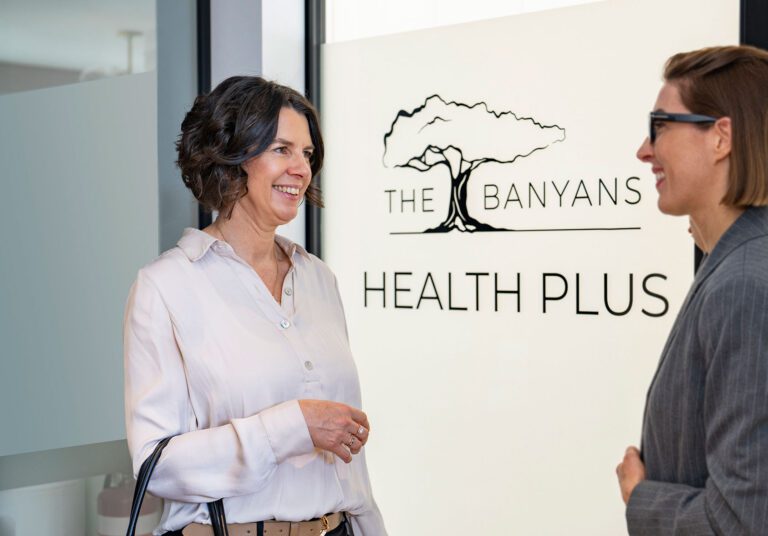
The world’s highest paid female athlete ever, Naomi Osaka, taught us all a valuable lesson this month when she withdrew from the French Open Tennis, citing mental health concerns.
The lesson? Mental health is priceless.
Osaka, who earnt US$37.4 million (A$48.2 million) in 2020, shone the spotlight on elite athlete mental health, drawing both applause and heavy criticism from every corner of the internet.
Osaka is not alone in her experience with poor mental health, with an increasing number of elite athletes making it public knowledge that good mental health is just as important as physical wellbeing.
The greatest Olympic swimmer of all time and mental health advocate, Michael Phelps, has applauded Osaka, saying “She’s putting herself out there, and I feel this really could be an even bigger breakthrough for the mental health world. This is something that really could help a lot of people.
She’s (Osaka) showing that vulnerability, she’s showing a side of her that we haven’t seen before, and that’s so powerful.
Phelps has been open with his own mental health challenges, including depression, and the ‘frightening physiological toll’ the pandemic took on him.
The Australian Institute of Sport’s (AIS) 2020 Mental Health Audit surveyed 749 elite athletes with 30% of elite athletes reporting they experienced symptoms of anxiety and depression and 17.5% reporting ‘high to very high’ psychological distress, compared with community norms of just under 10%.

One in five athletes reported they had previously sought help for mental health concerns, and the report found elite athletes are more likely to experience symptoms of depression and anxiety at a level that warrant professional health care.
According to the report, these findings mirror global reports for elite or professional sportspeople worldwide, although the rate can fluctuate depending on when the survey is conducted, such as in or out of season, or the type of sport.
A 2016 study, The Mental Health of Elite Athletes: A Narrative Systematic Review, notes elite athletes are vulnerable to a range of mental health problems due to the intense mental and physical demands that are a unique aspect of a sporting career.
One in three or 33% of elite athletes reported experiencing symptoms of anxiety and depression.
The demands of their sports may increase their susceptibility to certain mental health problems and risk-taking behaviours, including substance misuse, which can be related to both sporting factors such as injury, overtraining, expectations, and burnout as well as non-sporting factors.
“Even elite athletes, who appear to have everything they’ve ever worked for and wanted, are needing support with their mental health,” says The Banyans Healthcare Group Chief Executive Officer Ruth Limkin.
“These athletes are following their sporting dreams, but they are also experiencing added pressures from sponsors, fans, social media, traditional media, and being placed on a pedestal as a role model for younger athletes, if they agree to it or not.”
Related: What to say to someone who is depressed
Pressure to perform
The physiological drive and pressure to perform well, compete, and win comes from two sources – internal and external – and athletes’ mental health is impacted by both.
The internal ‘will to win’, personal drive, and personal expectation is extreme in elite athletes, and is often a major factor in determining success. Positive self-talk is essential to overcoming inevitable losses in their career.

External pressures placed on athletes by others within the sport itself – managers, coaches, administrators, teammates, families, and friends – can also be enormous.
Olympic swimmer Dan Smith, a friend of The Banyans Health and Wellness, has been open with his mental health journey.
“I lost sight of the enjoyment of being in the water, my wellbeing got lost, and my identity got wrapped in the sport, which all led me to a deep level of unfulfillment and brokenness,” he says. “I tried everything to fill the void and emptiness in me, which led me down a dark road.
Perspective is a good thing. Speak to people you trust, people you look up to.
Watch Dan Smiths’ interview at The Banyans Health and Wellness here.
Ruth says strong external support systems, through access to good psychologists and psychiatrists that teach athletes the mental skills of both winning and losing, are imperative for good mental health.
“They need all this, before they even begin to deal with the fans, media, sponsors and social media,” she says. “It’s no wonder so many of our athletes feel mental strain.”
Social Media
Social media has made it easy for large numbers of fans to troll, threaten and criticise elite athletes personally and directly, and athletes are paying the mental health price for the onslaught of negativity.

The public’s insatiable demand to ‘know’ a person can sometimes leave an athlete with little or no personal life that isn’t shared, scrutinised, and criticised.
“Today’s elite athletes experience intense support, and opposingly, concentrated attacks and trolling like no other generation in history,” says Ruth. “There is no roadmap for their social media journey, no guideline in how to manage it. At The Banyans Health and Wellness, we have worked with elite athletes in their bids to regain joy in their lives following mental health decline.”
Pressure from sponsors
Success is often accompanied with an influx of sponsorship dollars and deals, leading to intensified pressure to perform and win from an increasing number of external influences.
With the structure of sponsorship deals and negotiations changing daily due technology, and the need to achieve marketing cut through, sponsors are demanding more of their paid athletes than ever before.

Related: Research supports the Power of Positivity
Where to from here?
“Naomi Osaka should be congratulated for making the world aware her mental health is her priority,” says Ruth.
To take time away from the very thing that exacerbates anxiety is an important part of recovery.
If your mental health concerns are stopping you enjoying your everyday life, work, or sport, it’s advisable to seek professional help.
The Banyans Health and Wellness provides a safe, non-judgmental environment to process anxiety, depression, and other mental health diagnoses with thorough psychological and emotional support from psychiatrists, registered psychologists, and Masters-degree qualified counsellors.
If you or someone you love would benefit from the support of a program at The Banyans Health and Wellness, please call +61 1300 BANYAN (1300 226 926) for a non-obligatory, confidential discussion, or fill in our enquiry form below.












